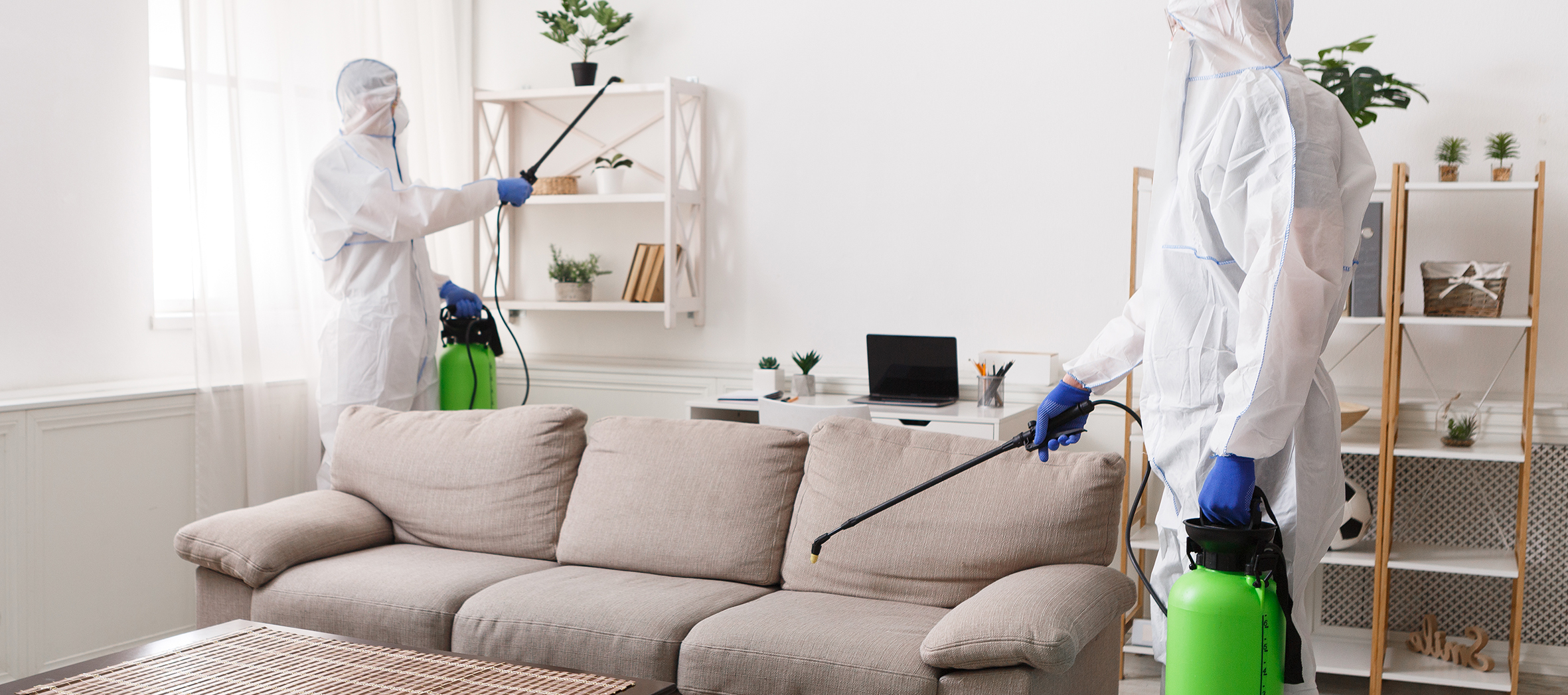Creating a healthy living environment is vital for our overall well-being. We strive to maintain cleanliness, practice good hygiene, and prioritize a safe and comfortable home. One crucial aspect of achieving a healthy living environment is preventing pest infestations. Pests, such as rodents, insects, and other unwanted critters, not only pose health risks but also cause property damage and financial consequences. In this article, we will explore the reasons why preventing pest infestations is essential and discuss effective strategies to maintain a pest-free home.
Health Risks Associated with Pest Infestations
Pests can have a significant impact on our health. Many common household pests are carriers of diseases and can spread them to humans. For example, rodents can transmit dangerous pathogens through their droppings, urine, and bites. Mosquitoes and ticks are known to transmit diseases such as West Nile virus, Lyme disease, and dengue fever. Cockroaches can trigger allergies and asthma attacks, especially in children. Moreover, the presence of pests can lead to poor indoor air quality, exacerbating respiratory conditions and causing allergic reactions. In homes with pets, fleas can cause skin irritation and transmit diseases like Bartonella.
Property Damage and Financial Consequences
Pests can wreak havoc on our properties, causing substantial damage and financial strain. Termites, for instance, are notorious for their ability to silently and destructively eat away at the wooden structures of our homes. Infestations can weaken the structural integrity, leading to costly repairs. Additionally, pests like rodents and squirrels may chew through electrical wiring, posing fire hazards and requiring expensive electrical repairs. The financial burden of dealing with pest-related damage can be significant, emphasizing the importance of prevention. If you’re a homeowner in Preston, it’s crucial to prioritize pest control to prevent infestations and mitigate property damage. Seeking professional pest control in Preston can help identify and eliminate pests before they cause extensive harm. So, wherever you live, it’s vital to find professional pest control services when you detect an infestation. This can save you from costly repairs and preserve the integrity of your property.
Maintaining Hygiene and Sanitation
Keeping a clean and hygienic living environment is crucial for preventing pest infestations and promoting a healthy living environment. Proper waste management, including using sealed bins and regular trash removal, helps eliminate food sources that attract pests. Cleaning up spills promptly, regularly disinfecting surfaces, and storing food in airtight containers further discourage pests from foraging. A clutter-free home minimizes hiding spots and facilitates early pest detection. Additionally, regular cleaning, including vacuuming, sweeping, and dusting, removes potential pest attractants and ensures a clean indoor environment. By prioritizing hygiene and sanitation, you can create an environment that is less appealing to pests and conducive to your and your family’s well-being.
Protecting Food and Food Safety

The presence of pests poses a threat to food safety. Pests are attracted to accessible food sources, which can lead to contamination and health risks. They contaminate our food with their droppings, hair, and body parts, which can lead to foodborne illnesses. Insects like flies and cockroaches are known to carry harmful bacteria and can easily contaminate food preparation areas. Proper food storage plays a crucial role in deterring pests. Using sealed containers and keeping food items off the floor helps prevent pests from accessing and contaminating the food. Regularly cleaning food preparation areas, eliminating spills and crumbs, and promptly disposing of food waste are important practices. By prioritizing food safety, you can reduce the risk of pests contaminating your food and ensure a healthy and pest-free environment in your kitchen.
Minimizing Allergens and Asthma Triggers

Pests are a common source of allergens, which can cause respiratory issues and exacerbate asthma symptoms. Dust mites, cockroach allergens, and rodent dander are known triggers for allergies and asthma attacks. It is essential to keep our homes free from pests that contribute to indoor allergens. Regular cleaning, vacuuming, and dusting can help reduce allergens in the living environment. Furthermore, addressing any pest issues promptly and implementing preventive measures can significantly minimize allergy triggers and promote better respiratory health.
Eco-Friendly Pest Prevention Methods
While it is crucial to prevent pest infestations, it is equally important to consider the environmental impact of pest control methods. Many traditional pest control approaches involve the use of harmful chemicals that can have adverse effects on the environment and our health. Fortunately, there are eco-friendly pest prevention methods available. These methods focus on natural and non-toxic alternatives to deter pests. For example, sealing entry points, maintaining proper ventilation, and reducing excess moisture can make our homes less attractive to pests. Seeking professional pest control services that employ eco-friendly techniques can also help eliminate pests while minimizing harm to the environment.
Regular Inspections and Maintenance
Regular inspections are essential for detecting and addressing pest issues before they escalate. Conducting routine inspections allows us to identify potential entry points and signs of pest activity. By catching infestations early, we can implement appropriate measures to eliminate pests and prevent further damage. Additionally, preventive maintenance measures, such as sealing cracks and gaps, repairing damaged screens, and addressing any plumbing leaks, help fortify our homes against pest entry.
Tips for Pest-Proofing Your Home
To create a pest-free environment, implementing preventive measures is key. Here are some tips for pest-proofing your home:
- Seal Entry Points: Inspect your home for any openings that pests can use to enter, such as cracks in walls, gaps around windows and doors, and openings around utility pipes. Seal these entry points using caulk, weatherstripping, or other appropriate materials.
- Proper Ventilation and Moisture Control: Pests are attracted to areas with excess moisture. Ensure proper ventilation in bathrooms, kitchens, and crawl spaces. Repair any leaks promptly and address any damp areas to deter pests.
- Landscaping and Outdoor Maintenance: Trim vegetation away from your home’s exterior to prevent pests from using it as a bridge to access your home. Remove any debris or wood piles near the house that could serve as potential hiding spots for pests.
- Storage and Organization: Keep storage areas, such as basements, attics, and garages, well-organized and clutter-free. Use sealed containers for storing items to discourage pests from nesting or foraging in these areas.
Preventing pest infestations is crucial for maintaining a healthy living environment. Pests pose health risks, cause property damage, and result in financial consequences. By practicing good hygiene and sanitation, protecting food sources, and implementing eco-friendly pest prevention methods, we can effectively deter pests from our homes. Regular inspections, maintenance, and pest-proofing measures also play vital roles in keeping our living spaces pest-free. By prioritizing prevention, we can create a safe and comfortable living environment that promotes our overall well-being.





